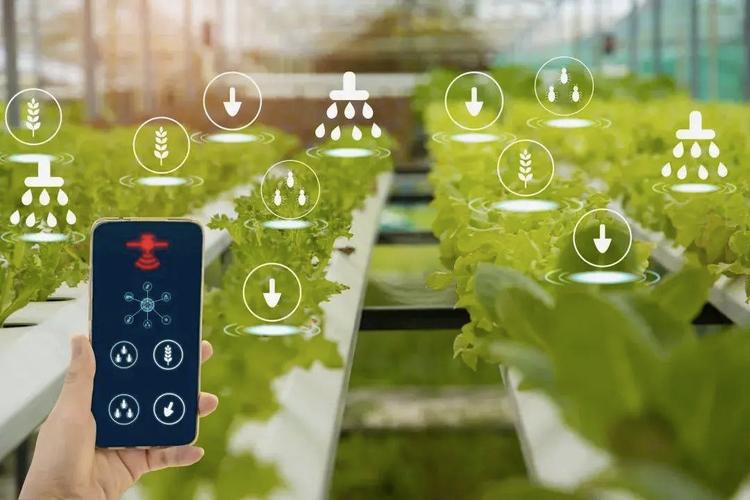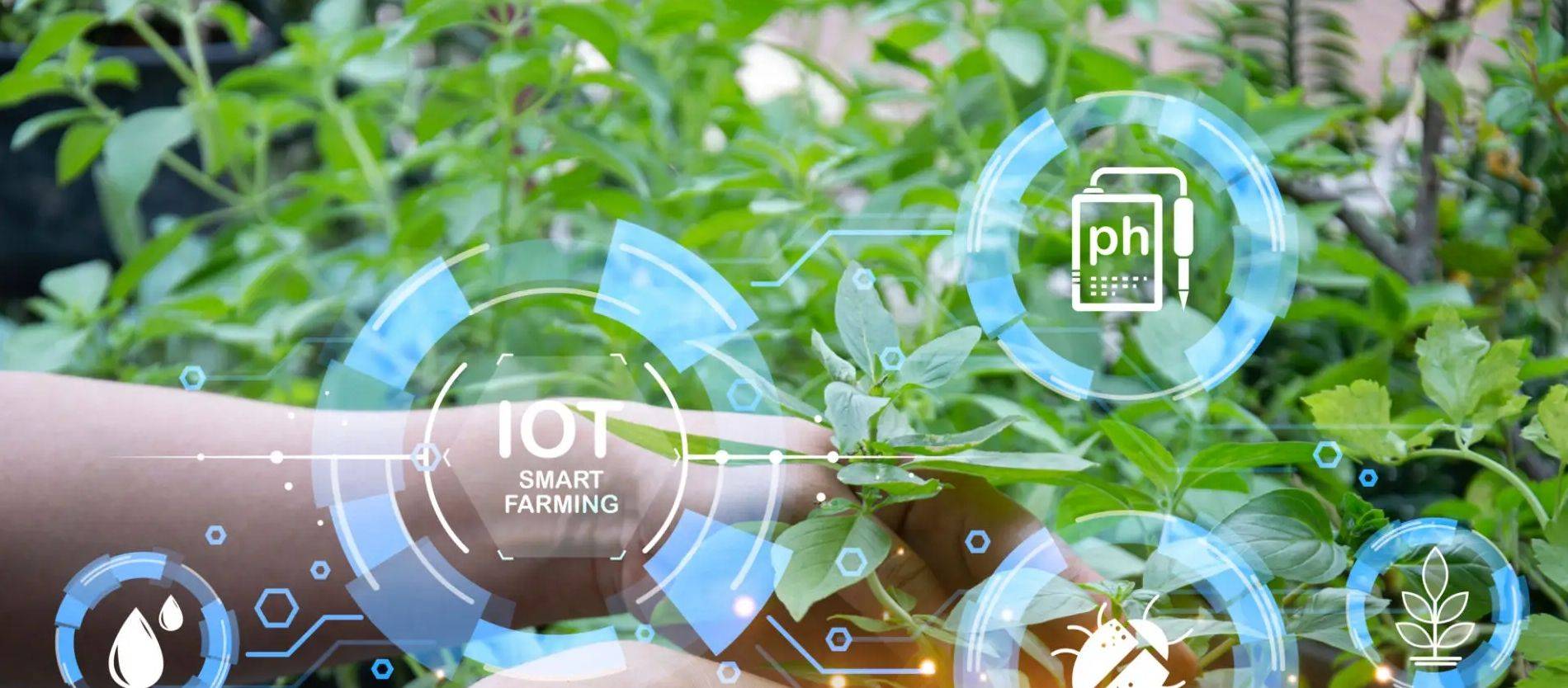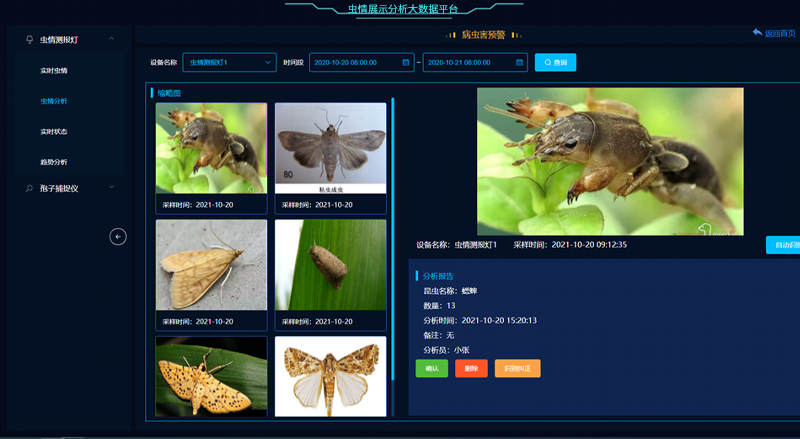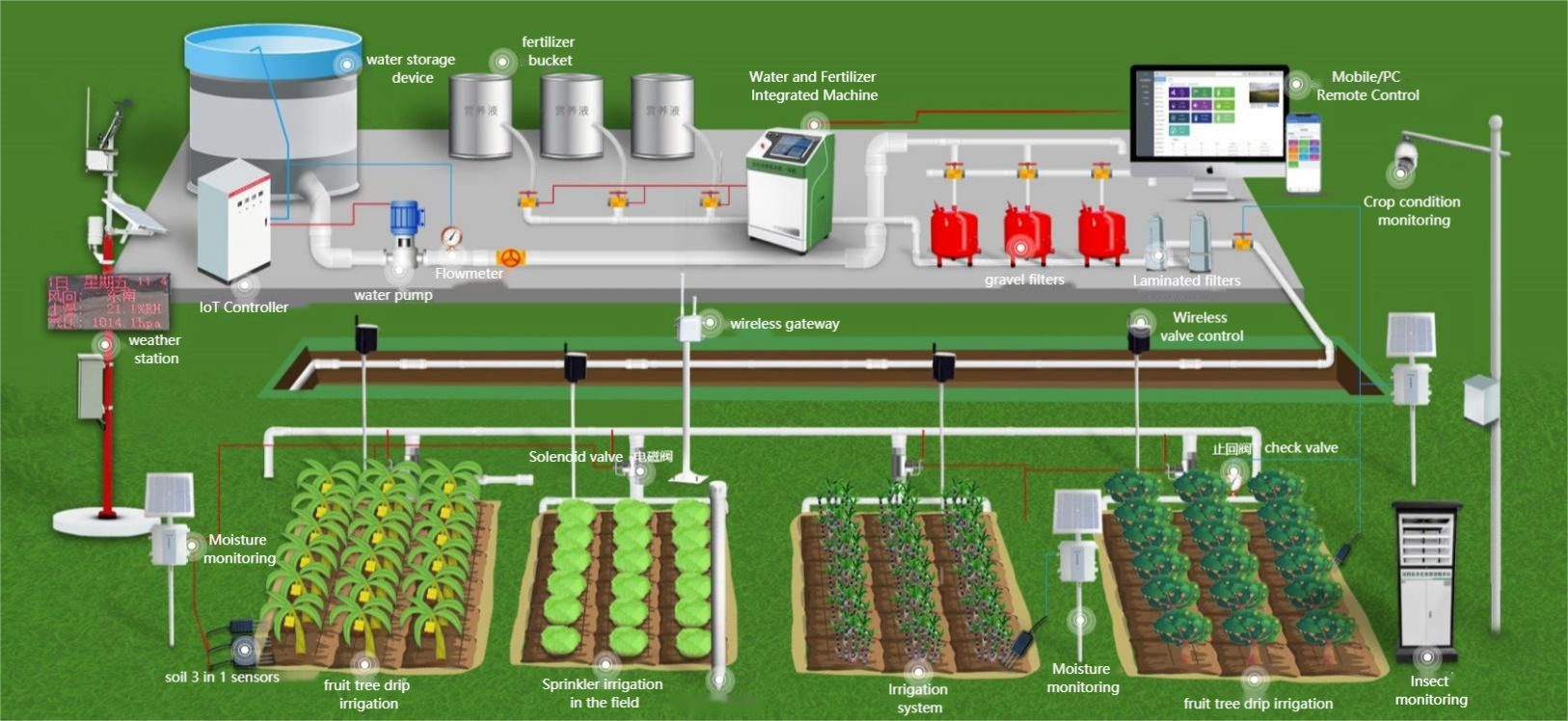

— Blogs —
—Products—
 Consumer hotline +8618073152920
Consumer hotline +8618073152920 WhatsApp:+8615367865107
Address:Room 102, District D, Houhu Industrial Park, Yuelu District, Changsha City, Hunan Province, China
Product knowledge
Time:2025-01-17 15:41:01 Popularity:209
With the continuous advancement of technology, agricultural production methods and management models are undergoing profound changes. As one of the key supporting technologies for modern agriculture, the Agricultural Internet of Things (IoT) is quietly transforming the traditional face of agriculture. By applying technologies such as sensors, wireless communication, and cloud computing in agricultural production, operations, management, and services, the Agricultural IoT enables the intelligent, efficient, and sustainable development of agriculture.

Agricultural IoT refers to the use of sensors, wireless communication technology, cloud computing, and other means to collect and analyze information involved in the agricultural production process, thereby enabling refined management and intelligent decision-making in agriculture. By installing sensing devices in fields, greenhouses, and livestock farms, the agricultural IoT can monitor environmental factors in real-time (such as temperature, humidity, light, soil conditions, etc.) as well as the growth conditions of plants and animals.
The collected data is transmitted via wireless sensor networks to cloud platforms or data centers, where it is aggregated, stored, and analyzed. Ultimately, by leveraging big data analysis and artificial intelligence technologies, farmers can obtain real-time data and predictions about crop growth and even automate processes such as irrigation, fertilization, and pest control, improving the efficiency and accuracy of agricultural production.

- One of the core advantages of agricultural IoT is its ability to significantly improve agricultural production efficiency. Through real-time monitoring and remote control, farmers can easily manage and allocate resources in the fields, reducing the need for manual intervention.
- The data collected by sensors allows farmers to adjust their production plans based on real-time conditions, such as accurately adjusting irrigation and fertilization times and amounts, preventing overuse of water and fertilizers, and improving the health of crops. This not only saves labor costs but also significantly enhances production efficiency.
- Agricultural IoT helps greatly reduce resource wastage in production through precise resource management. By monitoring soil moisture, temperature, and other data, agricultural IoT can accurately control irrigation and fertilization amounts, avoiding the common resource wastage seen in traditional agriculture.
- Through smart irrigation systems, the amount of water applied can be adjusted according to the soil's actual needs, achieving water-saving effects and reducing water resource waste. Additionally, agricultural IoT can help farmers apply fertilizer based on the actual needs of the crops, reducing the risk of overuse and soil pollution. This resource-saving management model not only reduces production costs for farmers but also helps reduce environmental pollution, promoting the development of green agriculture.

- Agricultural IoT can comprehensively monitor and manage every link in the agricultural production process, minimizing losses of agricultural products during production, processing, and transportation. For example, by monitoring environmental factors like temperature and humidity in real-time, farmers can promptly identify issues such as pests, diseases, or environmental changes, taking early action to mitigate crop damage.
- Moreover, the application of agricultural IoT can enhance the quality of agricultural products. During crop growth, IoT technology ensures that environmental factors are kept at optimal levels, controlling key growth conditions such as temperature and humidity, promoting healthy crop growth, and improving the taste and quality of agricultural products. This not only enables farmers to produce higher-quality products but also helps consumers enjoy healthier and safer food.
- As one of the core technologies in modern agriculture, agricultural IoT is accelerating the process of agricultural modernization. With the application of intelligent technologies, agricultural production becomes more automated, precise, and capable of real-time adjustment and forecasting. Farmers can plan production and make scientific decisions based on predictive results derived from big data analysis, avoiding the impact of human factors and improving the efficiency of the entire agricultural industry chain.
- Additionally, agricultural IoT plays an important role in product traceability systems. By collecting and recording data during the production process, IoT technology ensures the traceability of agricultural products, enhancing consumer trust in food safety and promoting transparency and branding in the agricultural industry.

With the continuous advancement of next-generation information technologies such as IoT, artificial intelligence, big data, and AI, the application of agricultural IoT will become increasingly widespread. In the future, agricultural IoT will further integrate with technologies like drones, robots, and smart agricultural equipment, pushing agriculture toward more intelligent, efficient, and sustainable development. It is expected that by 2030, agricultural IoT will be widely adopted globally and become an indispensable part of agricultural production.
The potential of agricultural IoT is immense; it not only promotes the efficiency and precision of agricultural production but also drives rural economic development, improves farmers' living standards, and makes a positive contribution to global food security and environmental protection. In the future, agricultural IoT will continue to play an irreplaceable role, driving agriculture into a smarter and more sustainable new era.

Agricultural IoT is gradually changing traditional agricultural production methods and management models, bringing unprecedented opportunities to agricultural production. With advantages such as improving efficiency, saving resources, and enhancing product quality, agricultural IoT provides strong support for promoting agricultural modernization and achieving sustainable development. With continuous technological progress and deeper applications, agricultural IoT will play an increasingly important role in the global agricultural field, laying a solid foundation for the realization of the beautiful vision of smart agriculture.
Related recommendations
Sensors & Weather Stations Catalog
Agriculture Sensors and Weather Stations Catalog-NiuBoL.pdf
Weather Stations Catalog-NiuBoL.pdf
Related products
 Combined air temperature and relative humidity sensor
Combined air temperature and relative humidity sensor Soil Moisture Temperature sensor for irrigation
Soil Moisture Temperature sensor for irrigation Soil pH sensor RS485 soil Testing instrument soil ph meter for agriculture
Soil pH sensor RS485 soil Testing instrument soil ph meter for agriculture Wind Speed sensor Output Modbus/RS485/Analog/0-5V/4-20mA
Wind Speed sensor Output Modbus/RS485/Analog/0-5V/4-20mA Tipping bucket rain gauge for weather monitoring auto rainfall sensor RS485/Outdoor/stainless steel
Tipping bucket rain gauge for weather monitoring auto rainfall sensor RS485/Outdoor/stainless steel Pyranometer Solar Radiation Sensor 4-20mA/RS485
Pyranometer Solar Radiation Sensor 4-20mA/RS485
Screenshot, WhatsApp to identify the QR code
WhatsApp number:+8615367865107
(Click on WhatsApp to copy and add friends)